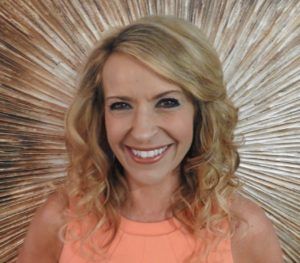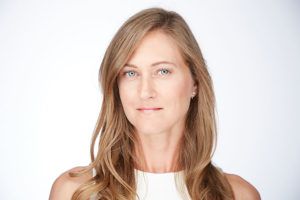This year has taken us by storm. When the clock struck midnight on New Year’s, we were celebrating the upcoming year with hopes for clarity, 20/20 vision, flow and prosperity. Most of us were unprepared for what happened by the end of the first quarter, when the global economy succumbed to the coronavirus pandemic.
Companies and organizations that have succeeded in taking advantage of these changes, and are experiencing unexpected growth, share two traits: They had an agile readiness plan and their leaders had the right mindset. Instead of fear, uncertainty and chaos, these CEOs, and leaders, saw opportunities and took advantage of the shifts in the economic momentum.
These changes created an opportunity for us, the authors, to collaborate, and share insights, with the international community of leaders on how to strengthen their mindset to manage through 2020 and prepare for whatever is coming in 2021.
In a three-part webinar series, conducted in the second and third quarters of 2020, we provided our perspectives and practical tools we use with our private coaching clients to strengthen their leadership abilities, address and prevent the feeling of burnout and position them for success every single day. Here are some highlights we are now sharing with you:
1. The Mid-Year Mindset Check-In webinar addressed how to set up the mindset for success every day. By taking care of your mind, and body, you are better prepared to take care of the people around you, and your business, by maintaining a positive perspective, clear communication and being imperturbable.
Lundberg’s insights: By setting a personal goal, and a professional goal, each day to accomplish within that 24 hours, there is an opening, and a closing, to the day that allows for compartmentalizing positively. Also, engaging in true listening with questions that start with “what” and “how” will get you to the “why”—or the reason someone is doing, or not doing, something and keeping perspective and understanding at the forefront of communication.
Anderson’s insights: When the world is raging in a storm around you, be the calm and an anchor for yourself, and for others, and you will achieve much more from not joining in the rage. To keep yourself in a nonreactive space requires great self-awareness, and a refined morning routine that gives you the foundation to face the world, and the day, with abundant energy and patience. This practice will show you that if you want to change other people, or circumstances, in your life, you first have to shift the way you feel about them.
What can you do each morning to give you a balanced, and clear, perspective on the day?
2. The Now What—Here’s How webinar addressed cultivating mental, and physical, energy, staying optimistic with the state of world, and politics, despite the drama by minimizing self-judgment, shifting to a long-term perspective and focusing on what you can control.
Lundberg’s insights: When you start, and/or end, the day with gratitude by reflecting on what, and who, makes a worthwhile contribution, that creates a mental state of readiness, and openness, for additional contributions and considerations. That approach does not mean everything is perfect, rather it means you are drawing from the good to handle almost anything. Similarly, prioritizing movement gets you moving. Physical movement changes your actions, and your energy, therefore relieving both physical and mental stagnation.
Anderson’s insights: Mindset is the key to your perspective on life, and business, and the success you will allow yourself to have in both areas. Removing blocks not only gives you more clarity when making strategic plans, and life decisions, it also frees up physical energy in your body. This process requires being intentional about everything you do on daily basis, recognizing the patterns of behavior and addressing them using appropriate tools for you. It is not a quick-pill solution; however, if you undertake this journey with the right guide to watch your blind spots, you will see the transformation in every area of your life.
What behavior patterns have you noticed that keep you from achieving more?
3. The CEO’s Guide to Stepping into Mentor/Coach Role webinar provided specific tools for leaders to make their employees feel heard, and supported, to facilitate necessary breakthroughs, and techniques, to avoid emotional burnout. (Burnout is common for the individuals tasked with emotional intelligence activities unless they have their support system and effective routines in place.)
Lundberg’s insights: Coaching is a conversation, not a condemnation. While coaching can feel like a task, when you make it a conversational part of the relationship, it is an enhancing aspect for growth. Seeing coaching as collaboration, and being able to assist others, replaces the idea of coaching being only corrective, or burdensome, to something that is growth-minded and contributory. Being coachable yourself, and welcoming ideas and feedback, are key to being an open, and empathetic, coach with, and for, others.
Anderson’s insights: Being a good mentor, or coach, and applying the skill of active listening, will benefit both your business, and personal, relationships. If it does not come naturally to you, with time and practice, it will get easier and you will experience a new depth in your relationships and how you relate to others. Allowing individuals to express their thoughts in a “safe” environment, without fear of judgment, allows them to own, and execute, on their decisions with more confidence. And as a leader/mentor/coach, you want to enable others to step into their zone of genius instead of doing the work for them. A word of warning, though: It might not be wise to coach your spouse, or life partner—so hire a professional.
What would make you a better mentor or coach in your organization?
What we are responsible for doing, as leaders, has remained the same. How we do those things from tactical, operational and emotional intelligence perspectives definitively has changed.
Your ability to stay calm, and clear-headed, in this fast-paced dynamic environment will give you the best coping mechanism. If you are feeling solid in your own decisions, your team and your ability to deal with uncertainty, you are prepared for whatever is coming in 2021, and beyond. If the thought of another rollercoaster year is giving you heartburn, or trepidation, it’s time to give yourself a solid foundation and fine-tune your mindset.

Debbie Lundberg is the founder of her Florida-based firm, Presenting Powerfully, where the focus is reversing the “slobification” of America with effective communication, professional behaviors and thriving relationships. Lundberg co-hosts “The Business Of Life Master Class Podcast” with her colleague and broadcast partner. A published author, certified life coach, certified leadership coach and certified image consultant, Lundberg’s latest book, Remote Work Rockstar: How to Work and Lead Successfully in a Virtual Environment, was released in May and is available through LuLu Press (lulu.com) or directly via debbielundberg.com.

Vera Anderson is a dynamic legacy coach. She works with domestic, and global business leaders and family office principals, helping them create customized solutions to reach their full potential in business, and personal life, removing mental blocks and empowering them to create an intentional, multigenerational legacy. Contact her at [email protected].